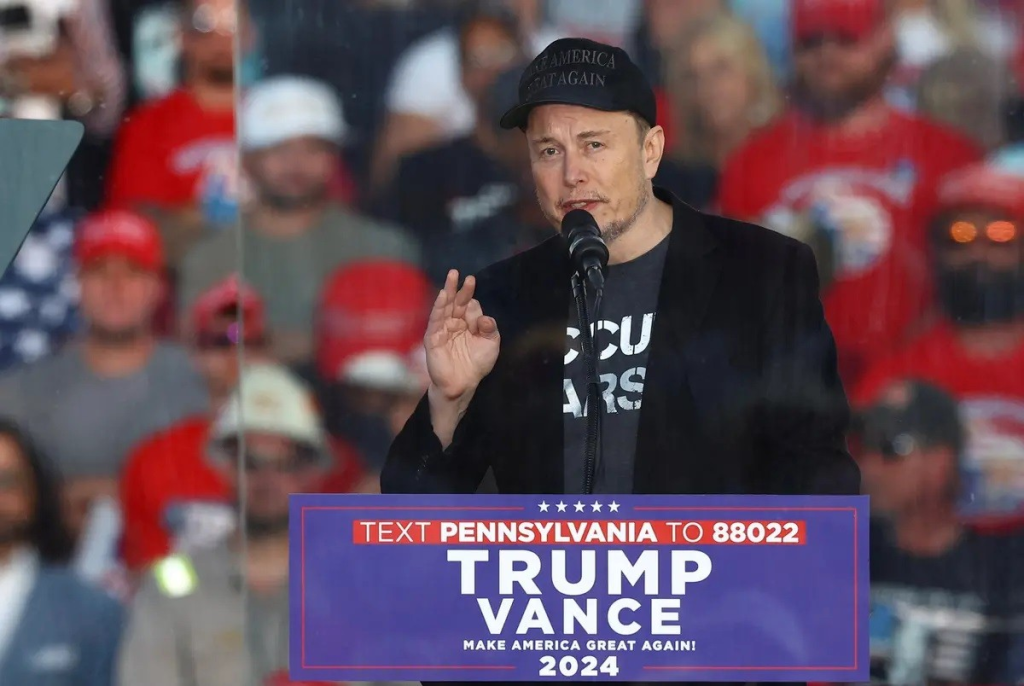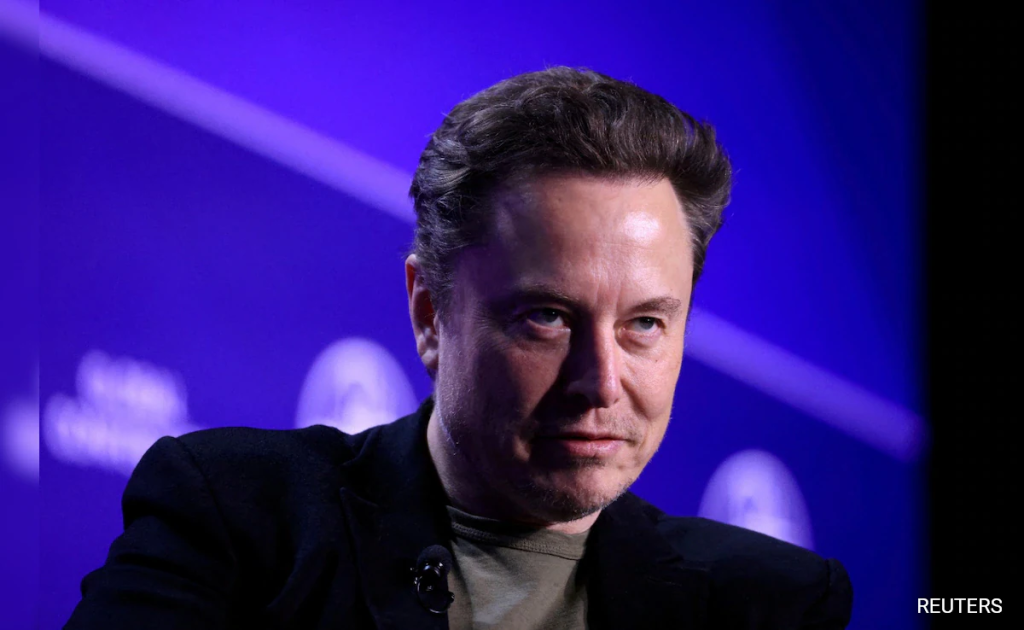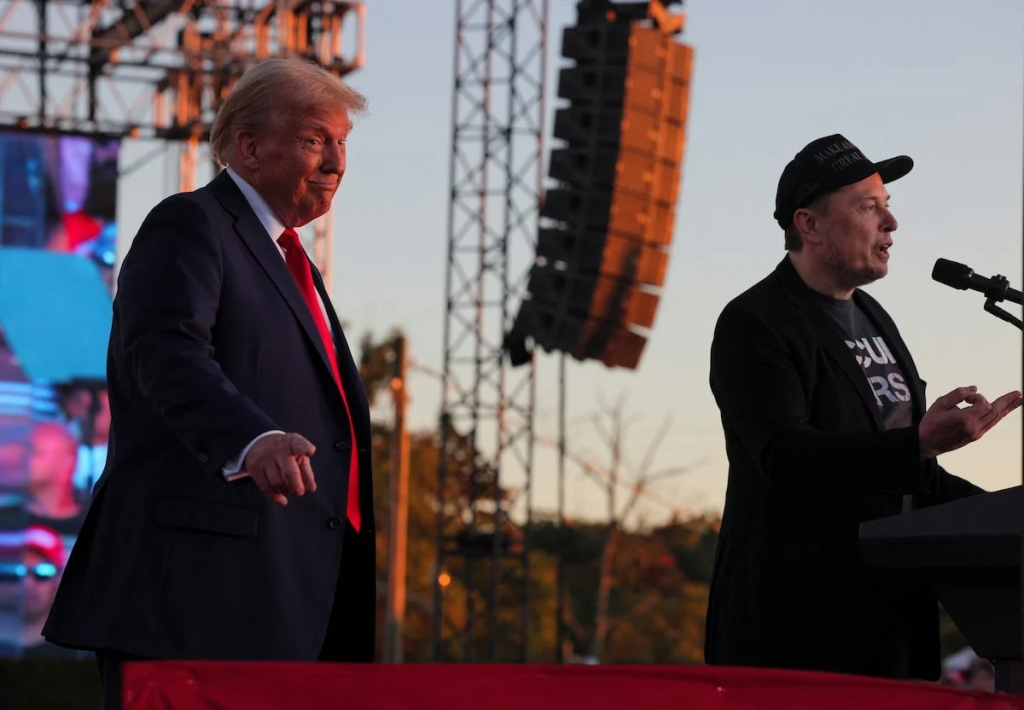
Elon Musk Faces Lawsuit Over Alleged Unpaid Canvassing Work in 2024 Election Campaign
A newly filed lawsuit is casting a harsh spotlight on tech titan Elon Musk, whose increasing involvement in politics has already raised eyebrows across the country. Now serving as head of the Trump administration’s Department of Government Efficiency and having played a key role in Donald Trump’s 2024 re-election campaign, Musk is facing legal trouble from an unlikely source — a grassroots political canvasser.

The core allegation? Musk failed to deliver on a promised $20,000 payment.
Filed anonymously by a suburban Philadelphia resident, the lawsuit claims that Musk and his pro-Trump super PAC, America PAC, failed to compensate him for extensive petition work leading up to the 2024 presidential election. The plaintiff, who requested anonymity due to fear of retaliation, says he spent weeks gathering signatures under the belief that Musk would uphold his end of the deal — only to be left empty-handed.

According to the suit, America PAC had pledged $100 to every registered voter in battleground states who signed a petition supporting free speech and gun rights. More notably, the PAC promised an additional $100 for each new person referred by those initial signers. These financial incentives — paired with Musk’s high-profile presence in the campaign — spurred many volunteers to hit the streets, collecting names and signatures with enthusiasm.
The plaintiff’s attorney, Shannon Liss-Riordan, a well-known advocate for workers’ rights in corporate labor cases, says the issue at hand is simple: keeping one’s word. “He was depending on that money to pay his bills,” she stated. “He put in the work because Elon Musk asked him to. He trusted Musk.”
According to the complaint, the plaintiff did receive partial payment for some of his canvassing hours — but the $20,000 he believes he’s still owed for referral bonuses remains unpaid, despite multiple attempts to resolve the matter.

Even more troubling, the lawsuit highlights a complete lack of response from America PAC. “He has made repeated efforts to contact the PAC to receive his full compensation,” the complaint reads, “but has received no reply.” What started as a civic engagement effort, driven by trust in a prominent public figure, has now turned into a legal battle marked by silence and disappointment.
For its part, America PAC has denied any wrongdoing. In a statement, spokesperson Andrew Romeo said the organization has paid for “every legitimate petition signature” and noted that “tens of millions” had already been distributed to grassroots workers nationwide. However, Romeo did not directly address the plaintiff’s claims.
“While we don’t yet know who this ‘John Doe’ is and can’t speak to their specific situation,” Romeo stated, “we are committed to rooting out fraud and reserve the right to withhold payments to anyone found engaging in dishonest practices.”
This response hints that the PAC may be questioning the legitimacy of the plaintiff’s claims — despite offering no public evidence to support such a suggestion. It’s a risky narrative, especially given the legal and reputational stakes involved.

The broader context makes this case even more significant. Reports indicate Musk spent approximately $200 million to support Trump’s re-election — making him one of the most influential political donors in American history and cementing his shift from tech mogul to political heavyweight.
Now, as a federal official overseeing government efficiency, Musk’s role demands greater scrutiny and accountability than his previous business endeavors ever did. While he’s used to the fast-paced, flexible world of private enterprise, public service comes with new expectations.
The plaintiff’s experience raises a fundamental question: What happens when everyday citizens trust billionaires — and are let down? The outcome of this lawsuit could help define the boundaries of accountability for super PACs and their wealthy backers.
It also highlights ethical concerns surrounding campaign labor. If unpaid or underpaid canvassers are left behind after serving a cause they believed in, what precedent does that set? What message does it send to future campaign workers?

For Musk, the optics are undeniably damaging. As he attempts to shape a new public identity centered on governmental integrity and innovation, being accused of stiffing a worker for $20,000 undermines that image. For a billionaire, the amount may be minor — but for the man behind the lawsuit, it’s life-altering. More than that, it’s about principle.
There’s also a deeply personal aspect to the case. The plaintiff claims he genuinely believed in Musk’s vision. He wasn’t just doing a job — he was answering a call to action. And when that call went unanswered after the work was done, it left a lasting sting of betrayal.
As the case proceeds, it’s likely to attract national attention — not only from legal experts but also from political commentators, activists, and possibly other campaign workers with similar grievances. It could pressure America PAC to be more transparent and open the door for further claims.
Ultimately, this legal battle could test Elon Musk’s credibility not just as a businessman or a tech visionary, but as a statesman. And while the lawsuit is still in its early stages, its implications reach far beyond the courtroom. At its heart, this is a story about trust, accountability, and the responsibilities of power — both political and personal.


